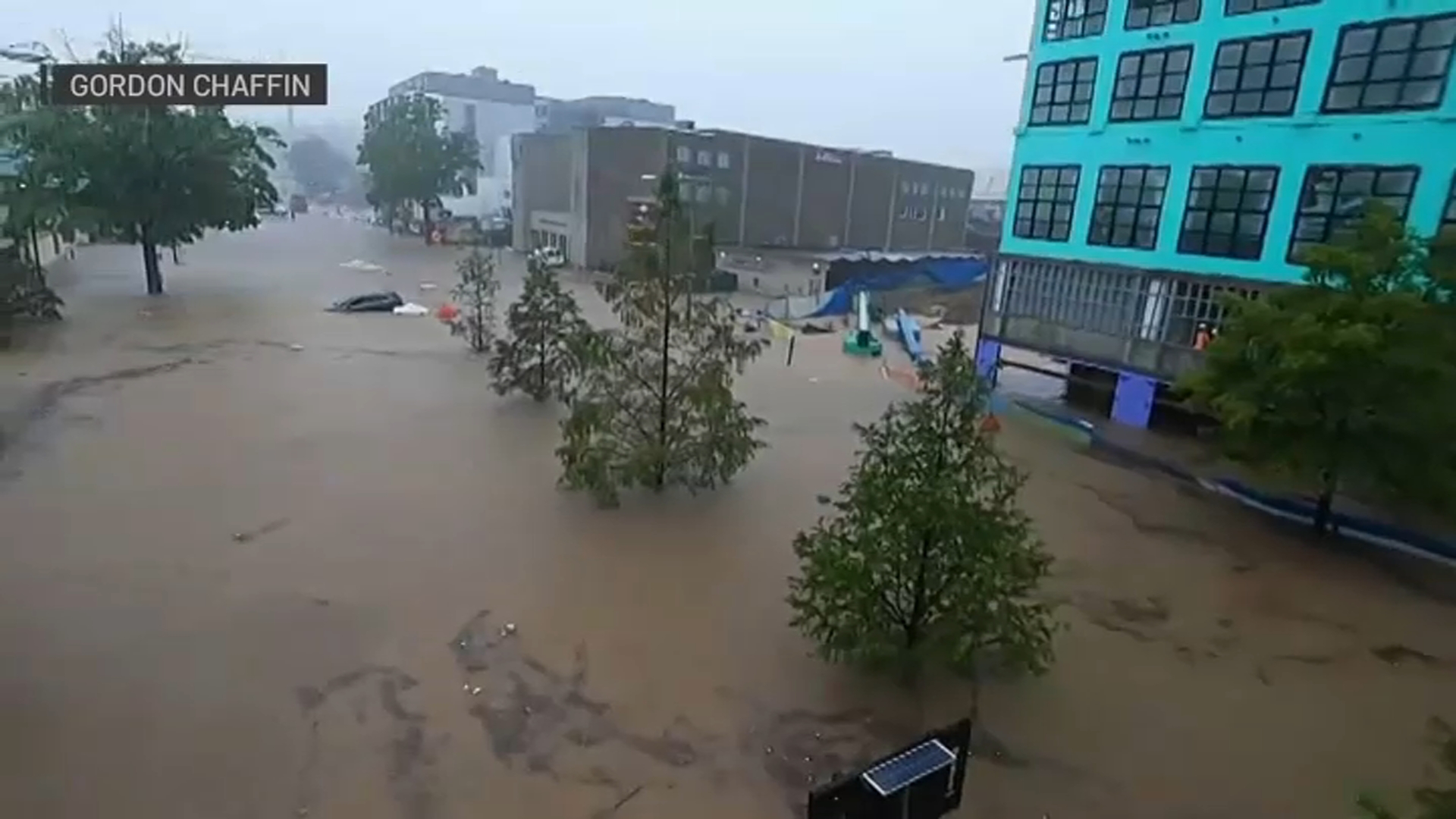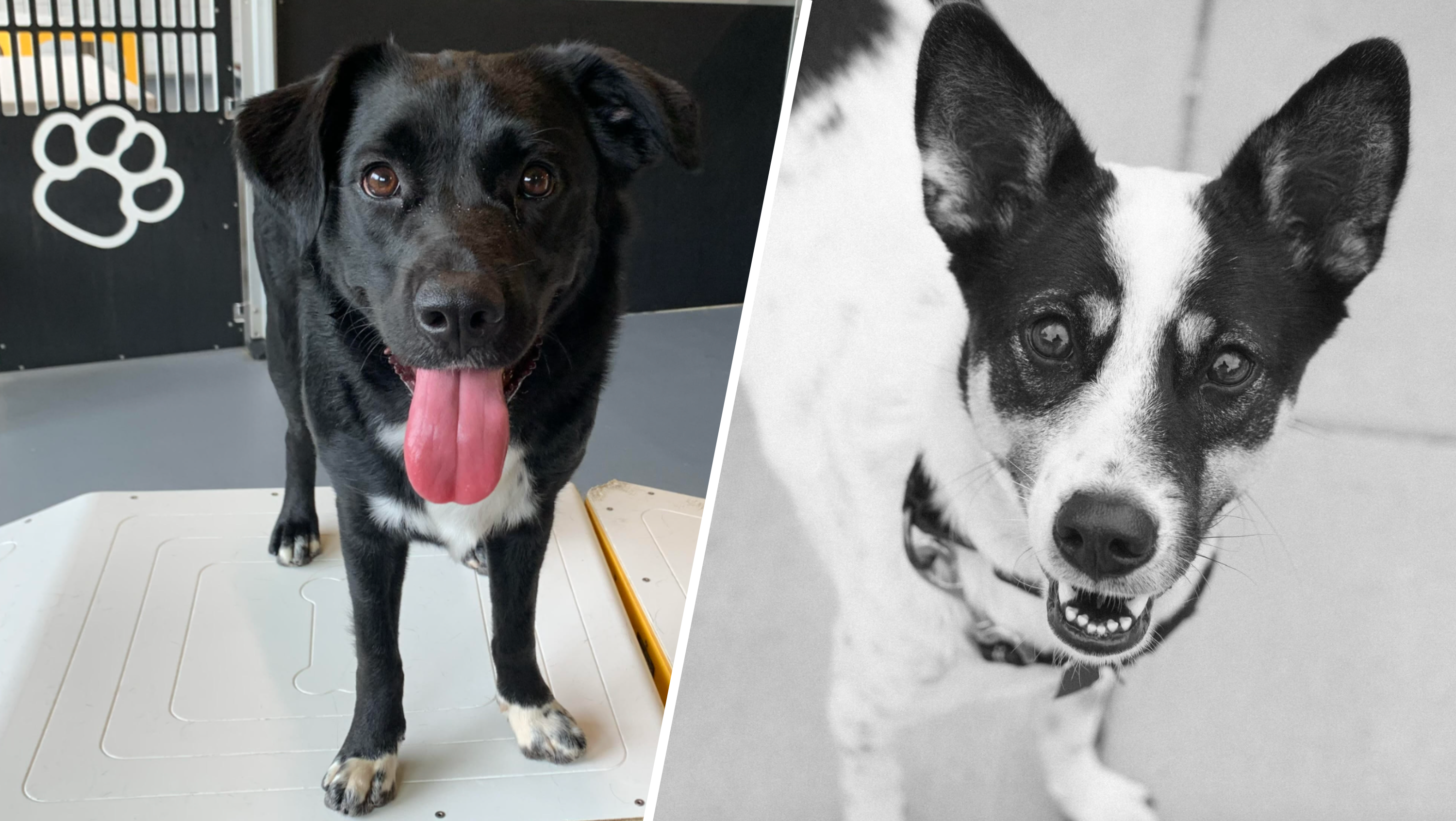A newly released after-action report reveals D.C. call takers and supervisors didn’t make clear the severity of the disaster unfolding, didn’t have the codes they needed to do their job and didn’t act as fast as they could, wasting nearly 15 minutes before telling everyone involved that people and dogs were trapped and in danger inside the District Dogs building during last year's tragic flood.
Ten dogs drowned in the incident Aug. 14 in Northeast D.C.
In February, members of the D.C. Council grilled Heather McGaffin, the head of the District's 911 system — the Office of Unified Communications (OUC) — about the agency's response to the District Dog flood. While her agency had months to do so before that hearing, McGaffin did not release an after-action report that day as expected, saying it would instead come from D.C.'s Homeland Security and Emergency Management Agency.
What she didn’t say is that the draft report was finished by Dec. 18 – months earlier.
We're making it easier for you to find stories that matter with our new newsletter — The 4Front. Sign up here and get news that is important for you to your inbox.
D.C. Councilmember Brooke Pinto released that report Wednesday. The D.C. Homeland Security and Emergency Management Agency didn’t explain to the News4 I-Team why it hadn’t released the report.
“As part of my oversight role of our emergency response and public safety agencies as Chairwoman of the Committee on the Judiciary and Public Safety, I requested, obtained and am reviewing a draft of the after-action report on the tragic District Dogs flooding incident last August," Pinto told the I-Team. "I firmly believe that increased transparency of the District’s emergency response is critical for improving accuracy, reliability and public trust, which is why I shared the draft after-action report from the executive with the public.”
The 25-page report breaks down the timeline of what happened Aug. 14.
Three 911 calls came in about District Dogs that afternoon.
The first call at 5:06 p.m. came from an employee who wasn't at work but watching the flooding from a remote camera. That employee and their partner, Corvo Leung, who was also on the call, told the call taker people and animals were trapped with rising water. According to the report, the call taker questioned how to code the incident in the dispatch system. According to the report, the call taker was told by a supervisor to enter it as "water leak."
Despite the call, no emergency response was dispatched to District Dogs after that first call. That's because the report said up until that time, a water rescue inside a building had never occurred in the city.
“To hear that classified as a water leak, when we very clearly said that people and dogs’ lives were in danger … It boggles my mind," Leung told the I-Team. "And it troubles me on a very, very high level.”
OUC got a second 911 call at 5:09 p.m. from another employee off site who also said there were people and animals inside. Only then did OUC dispatch the first rescue team to District Dogs, but the call over the radio to crews on scene was still described as a "water leak." At that moment, the report says, “the dispatch did not mention people or dogs being trapped.” It was still coded in the dispatch system as "flooding-public assistance." That's considered a "low priority,” so the fire commander turned the rescue crew around, which is standard practice.
A third 911 call came in at 5:17 p.m. from a person actually trapped inside. That’s when the computer system was finally updated to “water rescue.” It was 11 minutes after the first call. Five minutes after that, at 5:22 p.m., OUC made it clear for the first time over the radio to firefighters on the scene that people and animals were trapped and in danger.
The report reveals firefighters didn’t get into District Dogs until 5:29 p.m. and didn't reach the third caller until 5:35 p.m.
Leung still can’t make sense of it.
"I believe that had there been a faster response, a different response, a more accurate response, that the people that I know and care about and love wouldn't have as severe PTSD, that they would not have flashbacks every time it rains,” they said.
The report says any change in the coding would not have saved the dogs. The dogs were already dead, the report said, but it would have ensured proper resources were dispatched from the initial dispatch.
OUC says all its call takers and dispatchers have been trained since this incident to code future indoor water rescues as an emergency — categorizing them as "rescue or building collapse."
District Dogs flood
The report does not address the lack of problem solving or a work around for OUC when dealing with an emergency it never encountered before.
OUC didn’t respond to the I-Team's request for comment.
Pinto said she will push for more insight at OUC.
“With the implementation of my Secure DC public safety omnibus legislation that requires sustained public transparency of our 911 and emergency operations, I’ll continue to push for increased transparency to improve the accuracy and reliability of our emergency response and build trust with the public,” she said.
Reported by Ted Oberg, produced by Rick Yarborough, and shot and edited by Steve Jones.
Sign up for our Breaking newsletter to get the most urgent news stories in your inbox.




